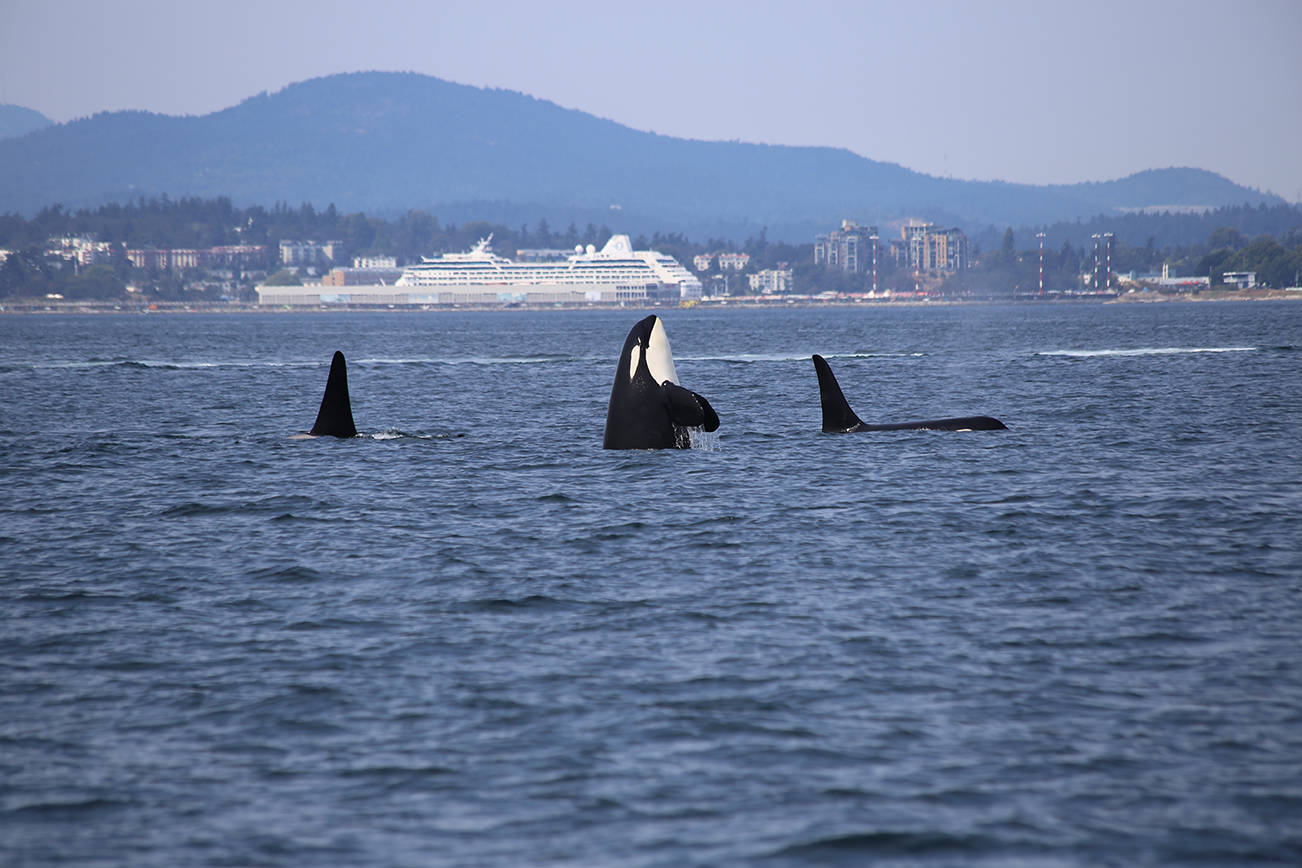New, from award-winning Seattle Times environmental writer Lynda Mapes is her book, “Orca: Shared Waters, Shared Home.” Mapes joined The Whale Museum on June 3 to discuss the state of the orcas and the process behind the creation of her fifth book.
“This miracle of the persistence of these orcas really moves me,” Mapes said. “These whales, when they’re well-fed and not under stress, they’re constantly playing and just being with one another and enjoying life.”
Mapes, who lives in Seattle, traveled to Johnstone Strait and out to sea aboard a National Oceanic and Atmospheric Administration research vessel to gather information for The Seattle Times’ Hostile Waters series which culminated into her newest book.
The news series began in 2018 when mother orca Tahlequah gently carried her deceased calf around for 17 days drawing international attention to the plight of the Southern resident orcas.
“In some ways [Tahlequah’s was] not a new story but it somehow had a whole new context all of a sudden,” Mapes said. “It was a very hard time for everybody and it continues to be.”
Mapes described her time aboard a Center for Whale Research vessel watching the grieving mother and the rest of J-pod mourn the loss of an orca calf that only lived for a half hour.
“[I realized,] we’re watching the saddest of sights,” Mapes said, noting the way the pod traveled slowly and close together. “They all stay very close with her, very slowly moving with her through the water — it’s a procession.”
Six million people read the article Mapes wrote about Tahlequah, she said.
“That had never happened before at the Seattle Times, that’s a lot of people,” she continued. “Suddenly, it pierced the veil of abstraction. … These were families, these were close-knit, highly intelligent families with family bonds. They just — they knew.”
The reaction to the article, which coincided with Gov. Jay Inslee’s Orca Task Force, resulted in the creation of the series by Seattle Times as a way to deep-dive into the lives of the orca, not just to report on breaking news surrounding the iconic animal.
“It was a story that moved the region,” Mapes said. “It really changed the conversation about these whales. … That all intensified greatly because of Tahlequah.”
In Canada, Mapes spent a week with researchers observing the Northern resident orcas — another group of killer whales that reside in the northern waters of the Salish Sea and similar to the Southern residents in many ways, beginning with diet.
“They’re both obligate fish eaters, they don’t eat animals, they only eat salmon,” Mapes said of the orcas, whose population has steadily grown. “It’s shocking, really, how much their numbers have increased. … It was a reset, a reminder of what ‘normal’ looks like. … Why are they doing so well while ours are in crisis?”
Northern residents have cleaner, quieter waters and access to far more fish than the Southern residents have, Mapes explained. They also have a reserve where they are left undisturbed and boats are only allowed in during sockeye salmon fishing season.
“It’s a place just for them, and our orcas don’t have anything like that,” Mapes said. “We’ve transformed the landscape of Puget Sound so much and the Salish Sea and of course it has an effect on the streams and rivers that produce the salmon that these whales have to have.”
Mapes’ latest book, “Orca: Shared Waters, Shared Home” is published by Mountaineers and is available now. For more information, visit https://www.mountaineers.org/books/books/orca-shared-waters-shared-home.
“I want people to be motivated. Charged up,” Mapes said. “These animals matter. The Northwest that we love would not be the Northwest without them. … Don’t think that this isn’t up to you, you’re the only one it’s up to.”



